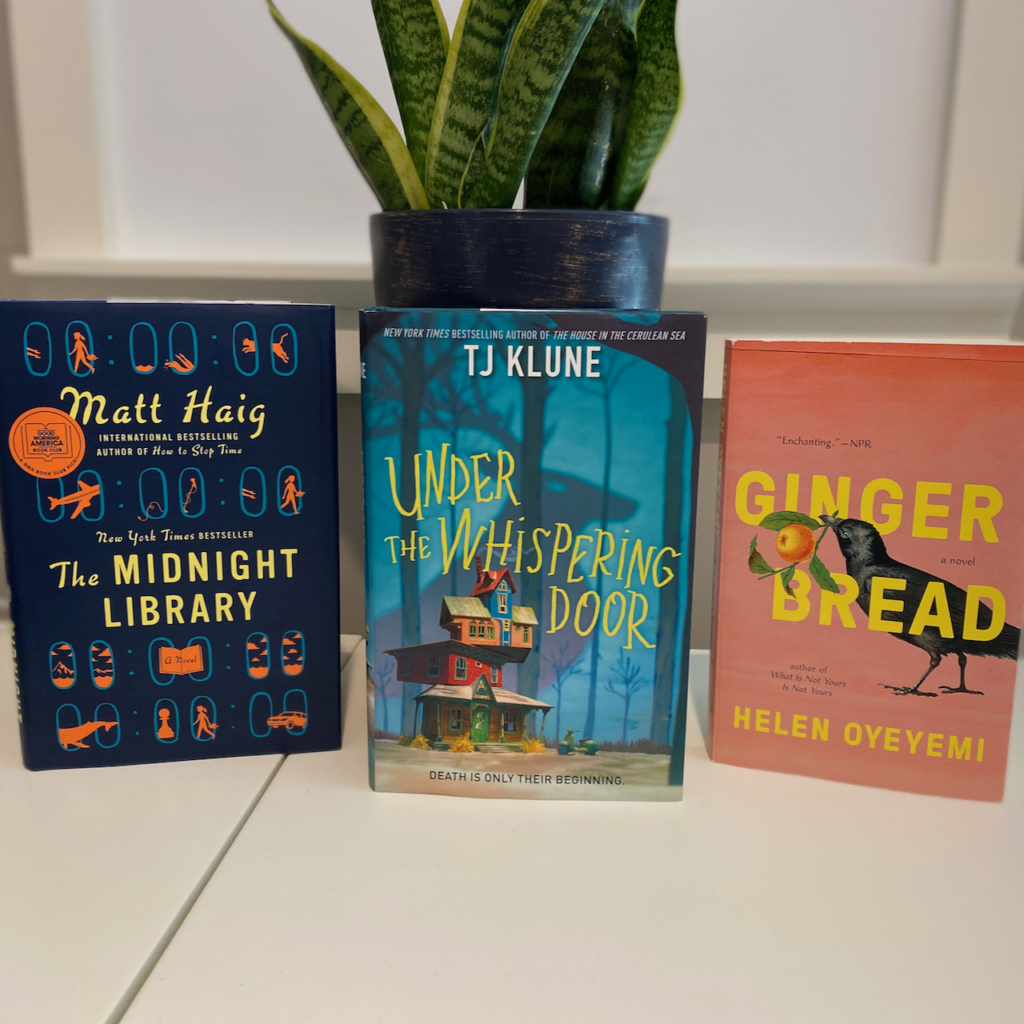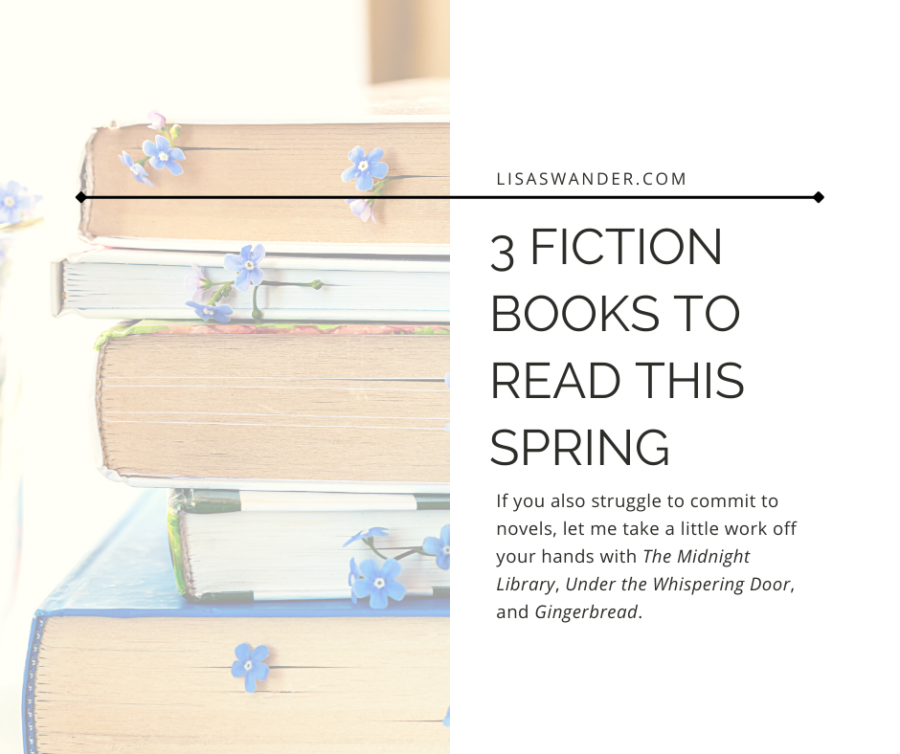Spring break just ended around here, which means I caught up on a little reading and precisely zero writing. As such, I’ll post my spring book lists in two parts—fiction this week, nonfiction next.
It’s always hard for me to pick out fiction books. There are more of them in a single bookstore than I could ever read in my lifetime, and I usually get so overwhelmed with decision fatigue I leave empty-handed, telling myself I’ll just reread Jurassic Park for the twelfth time.
Reading is a commitment none of us wants to enter lightly. But we also don’t want to research the sixty-five separate authors represented on one shelf of the New Releases section.
If it’s helpful, then, take these three I’ve vetted for you. They won’t break your heart, even if you’re fiction commitment-phobic.

The Midnight Library, Matt Haig
Matt Haig is a flagship author in the “uplit” literary genre, designed for readers who wish to feel better about humanity through fiction, not worse, and The Midnight Library does not disappoint us there. Our near-dead main character, Nora, is given the opportunity to play out the regrets that have tortured her all her life, and in the process finds nothing but a big, whopping scoop of self-compassion. As a bonus, she’s an former philosophy major, so get ready to get your Kant on in the narration.
Read The Midnight Library if you tend to steer playdate conversations toward quantum physics and the human condition just a tad more than the other moms do, and if you lean more Ted Lasso than Succession on the earnestness scale.
Under the Whispering Door, TJ Klune
Speaking of uplit, how about some TJ Klune? How about if he and Matt Haig could just talk all the authors into writing books that make it easier to get out of bed in the morning?
Under the Whispering Door is a cheese-and-caramel corn sort of book, an intersection of slapstick comedy, fantasy, and death so perfect and baffling that we didn’t even know to ask for it.
The plot revolves around a purgatory of sorts, where our main character, Wallce, hangs out after his death. He has to reconcile what he did and didn’t learn in life with a cast of loveable ghosts and humans, and folks. Purgatory is a TEA SHOP. In the TJ Klune universe, part of the afterlife is DRINKING TEA.
So now Google is just making my targeted ads into books.
Read Under the Whispering Door if you think most novels could be fifty percent funnier and nicer and still get their point across. Also if you think they were really onto something with Ghost and that a good love story benefits from one of the participants being dead.
Gingerbread, Helen Oyeyemi
There are some books that allow me to picture myself—with a copious amount of practice and unsympathetic editing—hanging out in a dim corner of the same literary world as their authors. I appreciate these books because they remind me that not everyone has to be Tolstoy; the market needs varying levels of talent, including mine. They remind me that some writing success might be conceivable in my lifetime.
Then there are books like Gingerbread, which allow me to do nothing but bow in front of them with my arms raised above my head, Wayne’s World style.
I think Helen Oyeyemi might be the Usain Bolt of writing—she’s here not to inspire us, exactly, but to show us the absolute upper limit of what humans can do. I could write for a thousand lifetimes and not even begin to wield the subtle knife of language the way she does.
A synopsis of Gingerbread is difficult because WHOA this book is surreal. It’s sort of a fairy tale retelling, but it’s also a satire about race, class, and gender, framed around three women who immigrate to the UK from a country that may or may not be imaginary. They possess a family gingerbread recipe that may or may not be evil. There’s never really anywhere to put your feet in this story, but somehow—okay, probably because Oyeyemi is a magical wizard writing from another plane of existence—reading it is immensely enjoyable.
Read Gingerbread if you don’t mind having to work to get to the nougaty center of a book, especially one that deals with magic. You could be forgiven for being over fairy tale retellings, but even if you never want to hear from another stepsister as long as you live, I’d give this one a go. I can promise you it will not be like anything you’ve read before.
Look for nonfiction in my next post, and as always, tell me what you’re reading. My to-be-read pile is currently two Action Figure Legolases tall, but I don’t mind adding a couple more. He likes to sit up high anyway.


